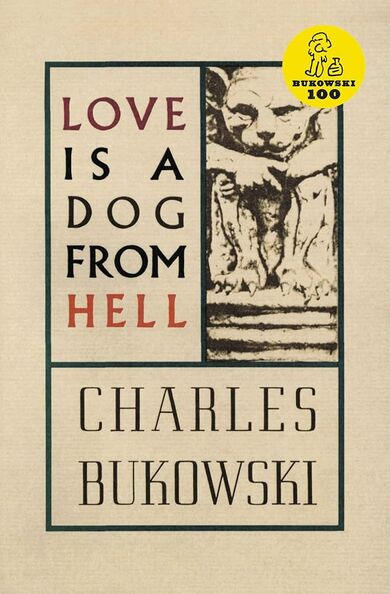John Dillinger and Le Chasseur Maudit
it’s unfortunate, and simply not the style, but I don’t care:
girls remind me of hair in the sink, girls remind me of intestines and bladders and excretory movements; it’s unfortunate also that ice-cream bells, babies, engine-valves, plagiostomes, palm trees, footsteps in the hall... all excite me with the cold calmness of the gravestone; nowhere, perhaps, is there sanctuary except
in hearing that there were other desperate men:
Dillinger, Rimbaud, Villon, Babyface Nelson, Seneca, Van Gogh, or desperate women: lady wrestlers, nurses, waitresses, whores poetesses... although,
I do suppose the breaking out of ice-cubes is important
or a mouse nosing an empty beercan—
two hollow emptinesses looking into each other,
or the nightsea stuck with soiled ships t
hat enter the chary web of your brain with their lights,
with their salty lights
that touch you and leave you
for the more solid love of some India;
or driving great distances without reason
sleep-drugged through open windows that
tear and flap your shirt like a frightened bird,
and always the stoplights, always red,
nightfire and defeat, defeat...
scorpions, scraps, fardels:
x-jobs, x-wives, x-faces, x-lives,
Beethoven in his grave as dead as a beet;
red wheel-barrows, yes, perhaps,
or a letter from Hell signed by the devil
or two good boys beating the guts out of each other
in some cheap stadium full of screaming smoke,
but mostly, I don’t care, sitting here
with a mouthful of rotten teeth,
sitting here reading Herrick and Spenser and
Marvell and Hopkins and Bronte (Emily, today);
and listening to the Dvorak Midday Witch
or Franck’s Le Chasseur Maudit,
actually I don’t care, and it’s unfortunate:
I have been getting letters from a young poet
(very young, it seems) telling me that some day
I will most surely be recognized as
one of the world’s great poets. Poet!
a malversation: today I walked in the sun and streets
of this city: seeing nothing, learning nothing, being
nothing, and coming back to my room
I passed an old woman who smiled a horrible smile;
she was already dead, and everywhere I remembered wires:
telephone wires, electric wires, wires for electric faces
trapped like goldfish in the glass and smiling,
and the birds were gone, none of the birds wanted wire
or the smiling of wire
and I closed my door (at last)
but through the windows it was the same:
a horn honked, somebody laughed, a toilet flushed,
and oddly then
I thought of all the horses with numbers
that have gone by in the screaming,
gone by like Socrates, gone by like Lorca,
like Chatterton...
I’d rather imagine our death will not matter too much
except as a matter of disposal, a problem,
like dumping the garbage,
and although I have saved the young poet’s letters,
I do not believe them
but like at the
diseased palm trees
and the end of the sun,
I sometimes look.






